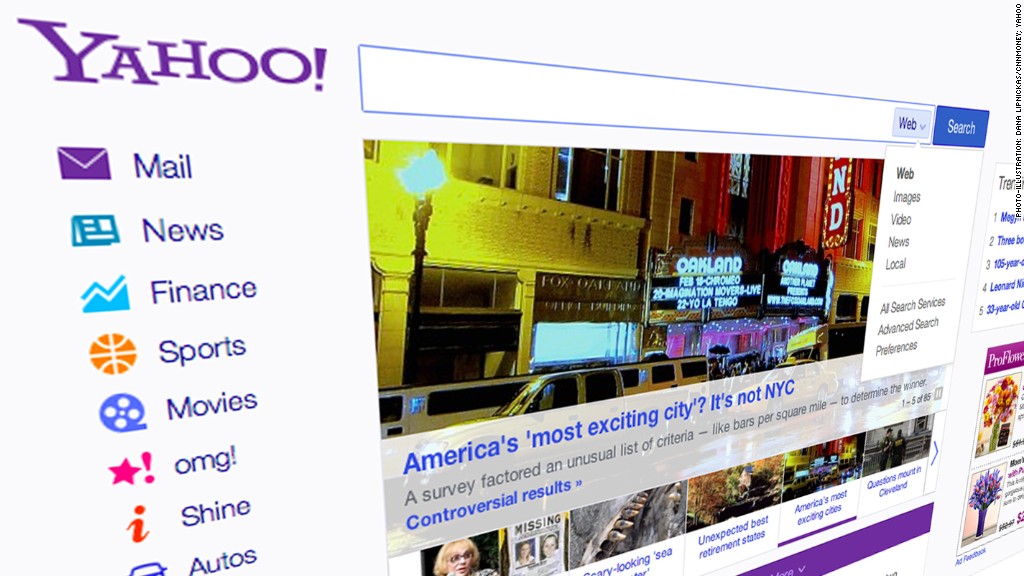
Yahoo may want out of its search agreement with Microsoft, but the Internet giant doesn't really have another option.
Yahoo essentially gave up on search in 2010, handing the keys over to Microsoft to serve up Bing search engine results on its websites. Yahoo pays Microsoft 12% of the revenue from ads on those pages.
It's no secret that the joint venture hasn't paid off as well as Yahoo hoped. The deal is meant to last 10 years, but the Wall Street Journal reported this week that Yahoo has been trying to get out of the partnership. Yahoo CEO Marissa Mayer has said several times that revenue from the Microsoft search agreement has been "disappointing."
According to the terms of the deal, either party could opt out in 2015. But Yahoo doesn't have anyone else on its dance card. Its only other option would be Google, and there's a big problem with that.
Yahoo and Google (GOOG) tried a limited search partnership in 2008, but the U.S. Department of Justice kiboshed it due to antitrust concerns. "Yahoogle" would control nearly 80% of the search market today, according to data tracker comScore (SCOR).
If Yahoo can figure out a way to structure the deal without drawing regulatory complaints, Google could be its saving grace, said Topeka Capital Markets analyst Victor Anthony in a recent note to clients.
"A partnership with Google holds the best hope for Yahoo to stem its search share slide," Anthony wrote.
Related story: Marissa Mayer extends Yahoo's maternity leave
Even though Mayer is an ex-Googler, a Google deal is extremely unlikely given the antitrust scrutiny that continues to surround the search giant, said S&P Capital IQ analyst Scott Kessler.
"The reality is, it's an interesting story to consider because there's a lot of history and a lot of intrigue," Kessler said. "But at the end of the day, I think this Microsoft (MSFT) deal will continue."
Some investors have called for Yahoo to go back to its roots and power its own search. But Kessler doesn't see that happening either, particularly after Yahoo worked hard in recent years to cut costs and lay off unessential employees.
"It would be a pretty massive uphill battle for Yahoo to extricate itself from this deal, start from square one, and rebuild a search team, technologies, and strategy," Kessler said. "At least not in a way that makes financial sense."
Despite the difficulties in search, that business accounted for $1.9 billion of Yahoo's (YHOO) nearly $5 billion in revenue for 2012. It's still an important part of Yahoo's business, and Mayer made it clear this week that she's focused on improving search -- at least on the user experience side.
"Most of our [upcoming] innovations will be in search," Mayer said at the Wired Business Conference in New York City on Tuesday. "Our focus is really on the front end ... for example, we can construct results in a different way."
That's the right path forward, says Kessler.
"[It's] not necessarily a bad thing to leave the technology to someone else," he said.
For the foreseeable future, Yahoo's results will still be powered by Bing.

